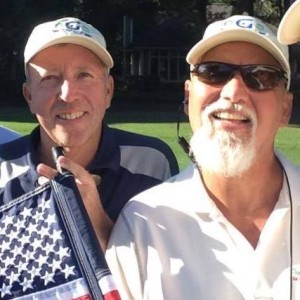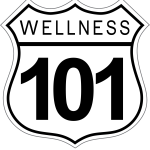Rich O’Brien Introduction

Rich O’Brien (left) and Fred Gutierrez (right) playing golf at the On-Course Foundation event at Dataw Island CC.
My name is
Rich O‘Brien and and I am a
Former Disabled Golfer. I earned that nickname because I no longer have a handicap on or off the course following a seven year road to recovery following a catastrophic accident that included eight normally fatal injuries, a near fatal addiction to prescription painkillers, a horrific battle with PTSD and 12,000 hours of rehab.
The lessons that I learned on my own road to recovery allowed me to teach others facing injuries, illnesses and challenges the game that I love. My training is in Sport Psychology and Exercise Science, but I also was a long-time college golf coach and have taught over 1,000 golfers how to play golf.
Following my own recovery, I was asked by a friend from church by the name of
Fred Gutierrez if I could teach him how to play golf despite the fact that he was paralyzed on the entire left side of his body from the top of his head to the bottom of his foot. Being asked to mentor him was a major step forward in my own recovery and together we were able to find answers to greatly improve the quality of his life by reducing his pain and the effects of his spasticity following his traumatic brain injury. Amazingly just six months after learning how to play golf, Fred earned the nickname
The Partially Paralyzed Golfer when he walked 36 holes and shot in the eighties in front of TV cameras, reporters and 60 spectators. Shortly thereafter, we co wrote the book, Half Paralyzed, Twice Strong which chronicles our amazing journey. Our story was featured on the Golf Channel by Al Tays for his
Challenged Tour Series.
I have been given the opportunity to write a
Golf Therapy column in the Charleston Golf News featuring inspirational stories of golfers with the indomitable spirit. The column also allowed us to champion the establishment of a PGA HOPE Program in Charleston and we enjoy working with the wounded warriors battling Traumatic Brain Injuries, loss of limbs and PTSD (as well as other illnesses). After seeing how our form of Golf Therapy could help improve the quality of life for the participants in the program we decided to take the next step and created a Golf Therapy Group on Facebook called
Golf Therapy…Using Golf to Overcome Injuries, Illnesses and Challenges. So far over 2,300 people have joined the group. If you are inspired by my stories, we encourage you to join the group as well.
Between us we have battled so many debilitating health conditions along the road to recovery. We dream of being able to improve the quality of life for people that are battling conditions that we battled, mitigated or overcame. We dream of giving hope to those people are suffering, but refuse to quit, by providing them with answers that can substantially improve the quality of their life. We recently researched the scope of the impact that our story could potentially have and were left dumbfounded when we realized that over 100 million Americans and as many as one billion people worldwide could be helped by what we learned during our struggles.
Our conditions included:
- Chronic pain which is an epidemic in the United States and worldwide with over 100 million Americans and over 600 million people worldwide in pain;
- Going hand-in-hand with chronic pain is the trap that many people fall into and that is an addiction to Prescription painkillers which as many as 52 million Americans are experiencing. Americans account for nearly 80% of all prescription painkiller addictions worldwide;
- Another debilitating condition that Fred and I both faced was Post Traumatic Stress Disorder (PTSD) which an estimated 9.8 million Americans and 3.6% of the world’s population is currently battling;
- Meanwhile our traumatic brain injuries were the equivalent of a stroke which plagues nearly 800,000 Americans a year and 15 million people worldwide and typically effects them the rest of their lives;
- And in 30% of the strokes, the survivor develops spasticity in one or more of their limbs, like Fred did. That means that each year approximately 240,000 additional Americans and 4.5 million people worldwide develop spasticity as a result of a stroke or TBI;
- Fred also battled Bipolar Depression (2.9% of the population);
- One of us also suffered the effects of Childhood Sexual Abuse (12.7% of the population).
During the course of the year I will be writing a series of articles about the lessons that I learned on the road to our recovery that should be helpful for many people facing injuries, illnesses and challenges.


No Comments